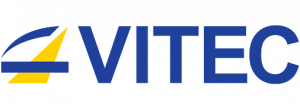AI and IP Video Set to Redefine Live Entertainment Venues Across Europe, Says VITEC Executive
PARIS, FRANCE, June 4, 2025 /EINPresswire.com/ -- As sports and entertainment venues across Europe prepare for a new era of digital transformation, artificial intelligence (AI), IP video technologies, and sustainability initiatives are poised to redefine fan experiences, operational efficiency, and long-term profitability. That’s the message from Myriam Calaber, EMEA Venue Sector Industry Engagement Executive at VITEC, in a recent vidcast interview for journalists.
“The venues that will thrive over the next decade are those that recognize adaptability as their greatest competitive asset,” said Calaber. “AI and IP video systems won’t just support operations — they will be core to how venues grow, engage audiences, and build new revenue streams.”
According to Calaber, the convergence of intelligent video distribution, real-time analytics, and smart automation will allow stadiums and arenas to transition from rigid, single-purpose facilities into dynamic multi-use spaces. From football matches to corporate events and children’s festivals, modern venues will be able to seamlessly shift branding, signage, and digital experiences to match diverse audiences — with minimal manual intervention.
AI plays a crucial role in enabling this transformation. “Venue operators are drowning in complexity,” she noted. “Dozens of disjointed systems can create inefficiencies and drive up costs. AI allows us to automate repetitive tasks, streamline event preparation, and personalize the fan journey — all while reducing the operational burden on human teams.”
One of the most significant shifts Calaber sees is in how these technologies will enable new business models. With intelligent infrastructure, venues can extend their activity calendar from a handful of annual matches or concerts to hundreds of tailored events. This shift not only boosts utilization rates, but also transforms digital signage and IPTV systems into lucrative advertising and sponsorship platforms.
“A stadium that can operate 150 days a year instead of 50 radically changes its economics,” Calaber explained. “Sponsors are eager to invest in flexible digital assets that offer real-time, targeted messaging. And with lower overhead and energy-efficient systems, ROI improves across the board.”
Sustainability is not an afterthought in this digital reinvention — it’s foundational. From VITEC’s low-energy media players to AI-driven systems that track environmental impact, Calaber emphasized that eco-friendly practices are increasingly tied to financial incentives.
“In Europe especially, sustainability is a business imperative,” she said. “Our customers are looking for technology that helps them meet ESG goals and regulatory requirements while also cutting costs. Smart systems that reduce energy use and simplify environmental reporting provide both operational and reputational advantages.”
The key to success, Calaber stressed, is collaborative innovation. VITEC works closely with CRM vendors, signage providers, architects, and consultants to design interoperable systems that align with venue operators’ long-term visions. She cited recent partnerships on stadium projects in France and Eastern Europe, where early-stage collaboration with fan engagement platforms helped deliver integrated, proven solutions even before contracts were finalized.
“Great venues aren’t built by a single vendor — they are co-created by an ecosystem of partners,” Calaber said. “By working together from the start, we ensure our systems are scalable, compatible, and ready to evolve.”
This partnership model is exemplified by VITEC’s work with high-profile clubs like Decathlon Arena. These venues not only deploy cutting-edge video and data systems but also serve as testbeds for innovation — showcasing how technology can support broader community engagement and multifunctional use.
Looking ahead, Calaber believes that open standards and modular architectures will be essential for next-generation venues to stay competitive. “You need flexibility to adopt future tools without ripping out what you already have,” she said. “That’s why VITEC is committed to building open, IP-based platforms that integrate easily with other systems.”
As digital transformation continues to accelerate across Europe’s live event sector, Calaber’s vision offers a clear roadmap for venue operators aiming to simplify complexity, future-proof their infrastructure, and deliver engaging, personalized experiences at scale.
“The opportunity is massive,” she concluded. “We’re not just talking about better tech — we’re talking about fundamentally reimagining what a venue can be.”
ENDS
[EDITORIAL NOTE: To read the Q&A with VITEC's Myriam Calaber, click here.]
Airrion Andrews
email us here
Mindshare Capture
Legal Disclaimer:
EIN Presswire provides this news content "as is" without warranty of any kind. We do not accept any responsibility or liability for the accuracy, content, images, videos, licenses, completeness, legality, or reliability of the information contained in this article. If you have any complaints or copyright issues related to this article, kindly contact the author above.
787 Coffee Continues Strategic Expansion: Bringing Specialty Coffee to New Communities and Digital Frontiers
Swell Country Launches ROI-Focused Digital Marketing Framework for Rapid Business Growth
Results of the IX Digital Asset Industry Classification System (“DAICS®”) 1H 2025 Review
Więcej ważnych informacji
 Jedynka Newserii
Jedynka Newserii

 Jedynka Newserii
Jedynka Newserii

Handel

Komisja Europejska chce wprowadzić ujednolicone przepisy dotyczące wyrobów tytoniowych. Europosłowie mówią o kolejnej nadregulacji
Ministerstwo Zdrowia opracowało nowy projekt przepisów wprowadzających kolejne zakazy dotyczące wyrobów tytoniowych – całkowitą eliminację e-papierosów oraz zakaz aromatów w woreczkach nikotynowych. Najprawdopodobniej w ciągu kolejnych dwóch–trzech lat Polska będzie musiała implementować nową dyrektywę dotyczącą wszystkich produktów tytoniowych, nad którym niebawem ma rozpocząć prace Komisja Europejska. Europosłowie mówią o ryzyku chaosu legislacyjnego, nadregulacji i wskazują na zagrożenia związane z proponowaną podwyżką akcyzy.
Konsument
Za trzy miesiące ruszy w Polsce system kaucyjny. Wątpliwości budzą kwestie rozliczeń i podatków

Zaledwie trzy miesiące zostały do startu systemu kaucyjnego w Polsce. Kaucje obejmą szklane i plastikowe butelki oraz puszki z napojami. To duża zmiana dla producentów napojów, sklepów i konsumentów oraz pośredniczących w zbiórce operatorów systemów kaucyjnego. Na razie przepisy są na tyle niedoprecyzowane, że budzą wiele wątpliwości w kwestii rozliczania podatków czy rozliczeń z operatorami. Producenci będą musieli płacić podatek od niezwróconych butelek, co zwiększy ich koszty.
Transport
Rośnie skala agresji na polskich drogach. Problemem jest nie tylko nadmierna prędkość, ale też jazda na zderzaku

Za kilka dni zaczynają się wakacje, czyli statystycznie najniebezpieczniejszy czas na drogach. Wśród głównych przyczyn takich zdarzeń na prostych odcinkach drogi są nadmierna prędkość i jazda na zderzaku. Zarządca autostrady A4 Katowice–Kraków w ramach kampanii „Nie zderzakuj. Posłuchaj. Jedź bezpiecznie” zwraca uwagę na zjawisko agresji na polskich drogach i przypomina, że bezpieczeństwo zaczyna się od osobistych decyzji kierowcy.
Partner serwisu
Szkolenia

Akademia Newserii
Akademia Newserii to projekt, w ramach którego najlepsi polscy dziennikarze biznesowi, giełdowi oraz lifestylowi, a także szkoleniowcy z wieloletnim doświadczeniem dzielą się swoją wiedzą nt. pracy z mediami.











.gif)

 |
| |
| |
|